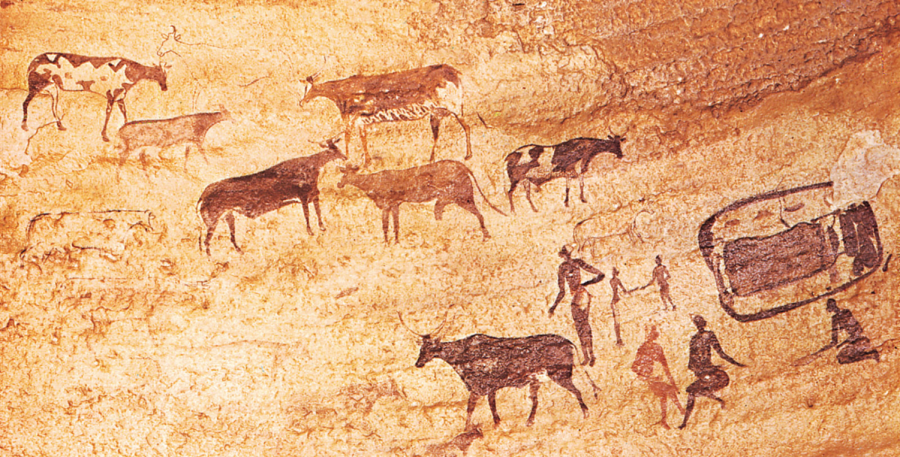What Makes a Species Domesticable?
Cows, sheep, pigs, chickens, cats, horses, and dogs are animals that have been domesticated and spread across the world. But why haven’t more species been domesticated?
Domestication is a process which has continued since ancient times.
November 15, 2020
Throughout history, humans have interacted with many different species of animals. In prehistoric times, most of these animals were hunted and used for food. However, a small amount eventually became used for other purposes, including labor, companionship, and the production of animal products. These species have all been domesticated, and make up the small number of species that live alongside humans today. The question is: Why haven’t more species been domesticated?
According to Harvard University, domestication is the process of adapting a species of plant or animal for human use. Unlike taming, where a single member of a species is trained to live alongside humans, domestication changes the entire species, and happens over many generations. Farm animals, like cows, sheep, and pigs are all examples of domesticated animals. Pets, like cats and dogs also fall into this category. While many animals have been tamed, only a few have actually been domesticated and spread worldwide.
According to the book “Guns, Germs, and Steel,” written by Jared Diamond, domesticated animals all share six traits, which are necessary for an animal to be domesticated. If a species doesn’t have all of these traits, domesticating it is either impossible, or would take too much time and effort to be feasible. The first of these traits relates to an animal’s diet. The animal must eat foods that are common, or easily produced by people. Today, most domesticated animals can live off of food commonly grown around the world. Some others, like cats and dogs, can live off of eating meat left over from humans. If an animal can only survive by eating one specific type of plant, humans won’t be able to keep it alive without putting in too much effort. In the end, the time and effort people would lose from domesticating the animal outweighs what they would gain. The second trait animals must have is a relatively short lifespan. If animals haven’t reached maturity yet, they take up lots of space and resources without providing many benefits. Animals that do age quickly are able to be used much sooner, making them much more useful. Another benefit of a fast lifespan is how quickly new generations can be produced. Since one human generation can raise multiple animal generations, the process of domestication is much faster. The third trait is the willingness to breed in captivity. In order to domesticate a species, multiple generations of that species need to live with humans. If an animal will only breed in the wild, it is impossible to get more generations, and impossible to domesticate that species. The fourth trait, and the most important for the safety of humans, is the animal being docile by nature. Animals that attack and injure humans are not only harder to domesticate, since they have to be changed more, but are too dangerous to domesticate. The fifth trait, which also relates to an animal’s temperament, is that they have to be calm by nature. Animals that panic at any sign of danger are much harder to contain, and it takes much longer to get them comfortable around humans. Finally, the sixth trait a species must have is a natural social hierarchy. If the species has a leader or alpha in nature, it is easy for humans to step into this role while domesticating. This makes the process much easier and faster, since the animals are already programmed to follow a leader.
If an animal is missing any one of these six traits, the chances of that animal being domesticated are extremely low. Whether it’s because it would be too expensive, take too much effort, or would be too dangerous for humans, the majority of species on earth haven’t been domesticated by humans, and probably never will be.









